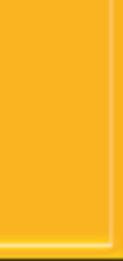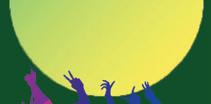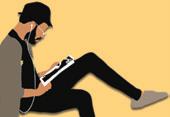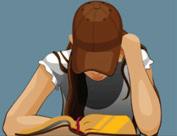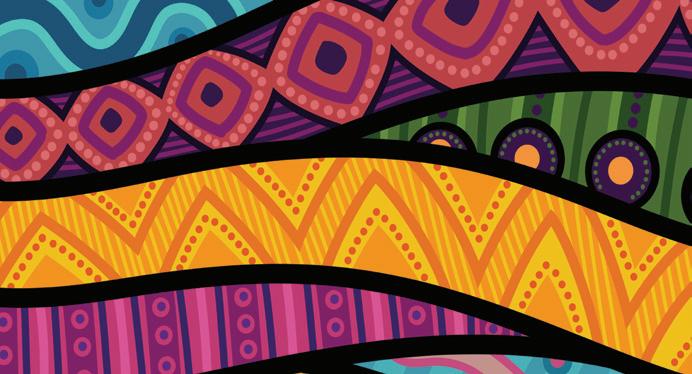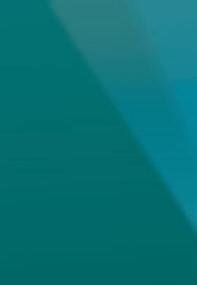












THE theme “Libraries for Sustainable Communities” highlights libraries’ transformative role in fostering sustainability, resilience, inclusivity and accessibility within communities. This theme aligns with South Africa’s commitment to sustainable development and equality –reflecting libraries’ contributions to sustainable cities and communities (SDG 11) and quality education (SDG 4).
Libraries provide inclusive spaces and access to resources for all members of society; empowering communities through education, social support and opportunities for lifelong learning.
Libraries are among the most inclusive institutions within communities.
They are designed to serve everyone regardless of age, gender, socio-economic status or background; offering free or low-cost access to a wide range of resources and services.
foster mutual understanding, cultural awareness and respect among community members. This inclusivity strengthens social bonds vital to developing sustainable and resilient communities.

In communities with barriers to education and information, libraries stand as beacons of opportunity, supporting people who may otherwise face exclusion. They provide accessible spaces that are welcoming to individuals with disabilities and language barriers, as well as those from historically marginalised groups – ensuring equitable access to knowledge and tools for growth. By bridging gaps between diverse groups and encouraging social interaction, libraries

Aligned with SDG 4, libraries are crucial in promoting literacy, learning and skills development across all stages of life. They provide resources for students, families and adults seeking education beyond formal settings.
By offering access to books, digital resources and study spaces, libraries support traditional education while providing a foundation for lifelong learning. This is particularly valuable in underresourced areas, where libraries often serve as the primary centres for free education and access to technology.
Libraries also host literacy programmes, early childhood education sessions and adult education workshops addressing the diverse needs of their communities.

the digital divide by providing technology, internet access and digital literacy training.
For individuals who lack access to digital tools at home, libraries are essential in ensuring that they can connect with the digital world – from conducting job searches and applying for services to participating in digital learning.

These efforts empower people to improve their lives and contribute more fully to their communities. For many, libraries provide the only access to the information and digital resources needed to pursue personal and professional growth; essential to building a knowledgeable and skilled population.
In an increasingly digital society, libraries are critical in bridging
By offering free access to digital resources, libraries enable everyone to benefit from technological advancements, regardless of their socioeconomic background.
This commitment to digital inclusion supports SDG 11 by making urban and rural communities more inclusive and resilient.
By providing digital skills training, libraries prepare community members for participation in the digital economy; contributing to local and national economic sustainability.


Libraries also play a valuable role in promoting environmental awareness and sustainable practices within their communities. Library programmes, workshops and information resources focused on sustainability educate individuals about climate change, recycling and sustainable living practices.
This knowledge empowers communities to make informed decisions contributing to a healthier environment and a more sustainable future.


Furthermore, libraries act as hubs for community engagement where individuals can come together to discuss shared challenges and solutions. This role supports social cohesion and resilience by fostering dialogue, civic participation and collaborative efforts to address community issues. In this way, libraries contribute directly to building strong, inclusive and sustainable communities.
This year’s South Africa Library Week (SALW) is special as we celebrate it when South Africa assumes the presidency of the G20.
The library sector is uniquely positioned to support the country in advancing its agenda with a particular emphasis on culture, community development and innovation – grounded in the themes of the SALW 2025 “Libraries for Sustainable Communities”.
Strategic alignment with G20 priorities
1. Promoting cultural exchange and understanding
• Libraries act as custodians of cultural heritage and play a vital role in promoting cultural exchange.


• Through partnerships with G20 countries, South African libraries can host exhibitions, virtual forums and storytelling initiatives highlighting cultural diversity, and shared histories.
• Digital platforms can be leveraged to facilitate crosscultural dialogue, mainly focusing on indigenous knowledge systems and languages.
2. Advancing the sustainable development goals (SDGs)
Aligned with the SALW 2025 theme, libraries drive sustainable community development by:
• Providing equitable access to

information for all, addressing SDG 4 (Quality Education).
• Supporting environmental literacy programmes, contributing to SDG 13 (Climate Action).
• Offering safe and inclusive spaces for community engagement, addressing SDG 11 (Sustainable Cities and Communities).


Empowering communities through innovation
In line with the Library and Information Association of South Africa (LIASA) 2025 theme, libraries are innovation hubs that empower communities by:
• Facilitating skills development in digital literacy, entrepreneurship and science, technology, engineering and mathematics (STEM), particularly for marginalised groups.
• Collaborating with tech innovators to provide maker spaces and hackathons for
problem-solving local and global challenges.
• Partnering with G20 nations to share best practices in library technology and service innovation.
The “Libraries for Sustainable Communities” theme celebrates a library’s vital role in promoting inclusivity, access to quality education, digital literacy, environmental awareness and community resilience.


By offering inclusive access to information, learning opportunities and resources, libraries empower individuals of all backgrounds to improve their lives and contribute meaningfully to their communities.
As centres of lifelong learning and social support, libraries are indispensable in South Africa’s journey towards creating a sustainable and inclusive future for all.


By Nkhensani Lowan
SITUATED in a rural place called N’wamitwa in Tzaneen, Limpopo, the Runnymede Community Library has reached its milestone of helping and enriching the
community. By giving people access to a variety of materials, providing programmes for both adults and children, and establishing a friendly atmosphere, libraries can help cultivate a love of reading. This encourages

reading and learning habits for life. To promote reading throughout the community, Runnymede Community Library offers three kinds of book clubs aimed at primary school learners, high school learners and grannies.



According to the third Ranganathan law, “to every book its reader” – libraries should make sure that all books, regardless of their popularity or age, are accessible to readers. In the photo above, the task required each
child to hold a book, read at least one page and then explain what they understood.
In order to inspire them and build their confidence, they were encouraged to pick a book in any language that would be


simple for them to read and understand.
Following the reading exercise, they engaged in a few other extramural activities which included singing, dancing and netball.


I read a story book called The Dog and the Shadow, after which I gave them a synopsis. Thereafter, my colleagues asked the learners questions such as who the main character was, what the story was about and what they had learned from it. Anyone who tried to respond received a lollipop. Engaging with them and evaluating their listening skills made it a worthwhile experience.
Our current focus is on the back-to-school campaign, which encourages scholars to visit our library for homework assignments and to use other facilities that their school may not provide, such as free computers and internet access.






Runnymede Community Library celebrated International Literacy Day with a spelling bee, impromptu reading sessions and a debate. The staff adjudicated these competitions.
A highlight was the Xitsonga spelling competition in which Malwandla Nsiki won first place at
the George (Western Cape) Fundza Mzantsi championship.
The grannies’ book club is where we encourage our grandmothers to read so that they can help their grandkids read and complete their homework. There have been some


bumps in the road, but the library is taking small steps towards solving the challenges.
Libraries contribute to a more educated, powerful and just society by fostering literacy, which benefits both individuals and communities.
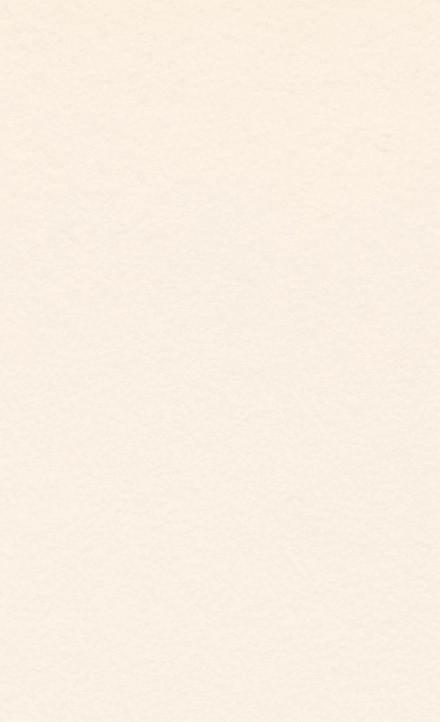

‘The
By Mogau Letswalo

I WAS fortunate to study at a prestigious primary school when it was not popular for township schools to have sponsors who could pump resources into ensuring that a black child received a quality education in a well-resourced school.

In 1987, after a lot of relocations and change of schools, I was admitted to Little Bedford View Primary School in Lebowakgomo Township, which was somehow linked to Bedfordview Primary School in Gauteng, and had international links to the Scottish government.
We had the opportunity to be taught English by white teachers from Scotland, Ms Kate Reid and Ms Brenda Swartz – and in addition to our normal curriculum, were exposed to extra-curricular activities such as debates, which required a lot of research at the young age of 10 when I was in Standard three (now Grade five). That is how my love for reading and writing was ignited.
I was exposed to a library at that tender age because in our school we had a well-equipped library with a lot of books. I would always volunteer to clean the library, knowing that I would get an opportunity to borrow some books to read.

However, the time was limited as we were only allowed to be in the library until four o clock and were not allowed to take the books home. I got involved in mischievous activities, sneaking books out of the library hidden in my gym dress. I would take two books at a time and make sure that I returned them after two weeks. I remember vividly that among the books for my age group that I managed to sneak out were Noddy and his car and Snow White and the Seven Dwarfs.
When I joined the National School of Government (NSG) in 2013, I found a space that resonated with my love for reading. The NSG afforded me an opportunity to upgrade my knowledge and skills, and it carried



me through my academic journey from 2015 to 2020 when I pursued my undergraduate and honours qualifications.
My love for writing has escalated to my opinion and analysis pieces published in the Sowetan Times live newspaper. I recently wrote a book – Mogau, a girl born for a special purpose – which was published in February. It’s a motivational book about the struggles I faced during my childhood and how I overcame them. It’s all about the power of redemption and rewriting a new chapter of my life.
May librarians continue to shine and uplift the lives of ordinary people like me.



By Dina Mashiyane PL (SA)
– Senior Manager: Outreach, Projects and Quality at NWU LIS
IN THE aftermath of the Covid-19 pandemic, the glaring inequalities in education and opportunities became even more pronounced, particularly in South Africa’s marginalised communities. The need for innovative, inclusive and sustainable solutions has never been more urgent. This is where libraries as knowledge hubs step in – not just as repositories of information but as transformative agents for social and economic change.

One such initiative is the Science Shop Project, an engaged scholarship project led by the North-West University (NWU) Faculty of Education in collaboration with other faculties and supporting departments. Funded by the National Research Foundation (NRF) and the Department of Science and Innovation (DSI), the project serves as a beacon of hope for youth “not in education, employment or training” (NEET) in the townships of Kokosi (Fochville) and Khuma (Stilfontein) within the North-West and Gauteng provinces. At its core, the Science Shop Project recognises that youth are not just passive recipients of


education but valuable community assets. By equipping them with essential skills such as information literacy, tutoring, coding and robotics, the initiative empowers them to become catalysts for change in their own communities.
The NWU Library and Information Service (LIS) plays a pivotal role in ensuring that information literacy for everyday life is embedded in the project; enabling young people to navigate, critically assess and apply information effectively. The project saw NWU librarians not only sharing their expertise as far as information literacy is concerned, but also contributing to scholarship, with two papers presented at the Bibliotheca Alexandrina in Egypt in 2024 at the International Conference on Information Literacy (ICIL Africa). NWU LIS was a co-host of the conference, where a special issue journal on Information Literacy was conceptualised featuring


two papers on the Science Shop Project. This will be published in the South African Journal of Libraries and Information Science (SAJLIS).
The Science Shop initiative aligns directly with the 2025 South African Library Week (SALW) theme of “Libraries for Sustainable Communities”. By equipping the NEET youth with lifelong learning skills, the NWU LIS is actively contributing to SDG 4 (Quality Education), SDG 10 (Reduced Inequalities) and SDG 17 (Partnership for the Goals). The project serves as a model for how libraries can move beyond traditional roles to become active agents in socio-economic transformation. It is a testament to how information literacy can change lives – demonstrating that the future of education is not just about access but about active participation, knowledge-sharing and community-driven solutions.






AS PART of its commitment to advancing open access and sustainable research practices, the Durban University of Technology (DUT) Library in collaboration with the DUT Research Unit, is leveraging transformational agreements (TAs) to support its academic community. These agreements, set up with publishers, allow DUT researchers to publish in open access platforms without incurring high article processing charges (APCs) – enhancing the visibility and impact of their work.



TAs are contracts negotiated between institutions, publishers or consortia, that intend to replace the traditional subscriptionbased model of scholarly journal access with a more open-access framework. DUT, through the South African National Library Consortium (SANLiC), has entered into agreements with six publishers so far; with more expected in the future. Agreements have been formalised with Elsevier, Springer Nature, ACM Open, Emerald, Wiley and Taylor & Francis.





Romeo Muvhulawa Matumba PL (SA) Librarian: Marketing & Communication, DUT




By adopting TAs, DUT and other university libraries are making research freely available by removing financial barriers and increasing the dissemination, and impact, of scholarly work. Open access articles are more discoverable, leading to higher citation rates and broader visibility


for researchers and institutions. DUT has seen the transformative impact of these agreements in democratising access to knowledge; allowing researchers and readers worldwide to access the latest research without financial or subscription barriers. In essence, DUT Library sees this as a model for fostering a sustainable research environment, aligning with its mission to support and advance scholarly communication – an approach that reflects LIASA’s current South African Library Week theme: “Libraries for Sustainable Communities”.
To maximise awareness and engagement, DUT Library has implemented a multi-channel communication strategy that includes disseminating information through the library website,


social media, university pinboard, notices, TV screens, as well as both digital and print posters. Regular updates on TA publishing opportunities and researcher benefits are shared across these platforms to ensure widespread access to key information. “These agreements have not only facilitated equitable access to publishing opportunities, but have also contributed to the university’s financial sustainability, saving approximately R7.2 million in 2024 alone. By supporting an open, inclusive, developmental and transformational approach to research dissemination, these agreements empower DUT researchers while ensuring long-term cost efficiency and accessibility,” said Dr Malefetjane Phaladi, DUT’s Director of Library Services.




By Matete Lesele


FINDING a job can be tough. That’s why Randburg Library recently hosted a fantastic workshop to equip job-seekers with the skills they need to succeed.
Led by experienced librarians Matete Lesele and Lindani Sikhakhane, the workshop covered everything from crafting a winning curriculum vitae (CV), using social media to land your dream role, and acing that interview.






Here’s what job-seekers learned:
CV and interview power-up: Participants learned how to write eye-catching CVs and cover letters that stand out. They also got expert tips on how to prepare for and confidently manage job interviews. These skills are vital to landing great jobs and improving people’s lives, which supports the United Nations’ Sustainable Development Goal (SDG) of Decent Work and Economic Growth (SDG 8).

Build an online brand:

Social media savvy: The workshop explored the power of social media platforms like LinkedIn. Participants learned how to use these platforms to connect with potential employers, find job openings and build professional networks.
This aligns with the goal of using technology for economic advancement (SDG 9).

Participants learnt how to create a strong online presence that showcases their skills and experience. This helps them build a professional reputation and contributes to quality education (SDG 4) by equipping them with the skills to thrive in the digital age.


workshop introduced participants to the world of Wikipedia editing. By contributing to this global knowledge-base, they can share their knowledge and help make information more accessible for everyone. This supports the goals of global partnerships (SDG 17), building peaceful and just societies (SDG 16).
club: A bonus

club on the second Tuesday of each month, led by ReaderWorld chairperson Rethabile Dladla. The book club promotes reading, encourages critical thinking and fosters cultural exchange – all of which contribute to quality education and building peaceful societies (SDGs 4 and 16).
Randburg Library: A hub for success

The workshop demonstrated Randburg Library’s commitment to supporting the United Nations’ Sustainable Development Goals. By providing access to information, fostering lifelong learning and empowering individuals with essential skills, the library plays a vital role in:
• Reducing poverty and inequality by helping people find good jobs (SDGs 1 and 10);
• Promoting sustainable economic growth by fostering digital literacy and supporting job creation (SDGs 8 and 9);


The workshop also highlighted the Randburg Library’s exciting partnership with ReaderWorld. This partnership offers a monthly book

• Ensuring quality education by providing access to information and promoting lifelong learning (SDG 4);
• Building peaceful and inclusive societies by promoting dialogue, cultural exchange and access to information (SDG 16).

Randburg Library serves as a valuable community hub offering essential resources and services that empower individuals – and thereby contributes to a more just and equitable society.



By Cheryl Petersen – City of Cape Town Library and Information Services
BELHAR Library offers the community storytelling, book clubs for all age groups, digital literacy, information literacy and reading programmes. These activities take place on a regular basis, as with most libraries.

In addition, the library offers onceoff programmes such as stationary drives at the beginning of the school year for underprivileged learners – even including free hairstyling at times. When sponsors donate food, Belhar Library also provides a meal. On Valentines’ Day, the library treated community members to snacks and a movie to make them feel special.
Once a year, we host a reading competition with primary schools in the area that is welcomed with much excitement by both teachers and learners. The event generally starts with breakfast because some learners may not have had any when they attend. Winners in English and Afrikaans reading are chosen, as well as two runners-up. They are awarded trophies or medals and gift bags.
After school, we assist learners with homework, read to them and do art activities or make games available once their homework is done. Over the years, we have successfully presented career expos, employment programmes and


learner’s driving license programmes – and intend to continue with these. We regularly do crèche, school and clinic visits to promote the library, outline all our activities and encourage people to visit and join.
We never skip World Read Aloud Day given its importance in the development of reading skills, especially for younger children.


Flourish by Nads is a free antenatal and post-natal programme that runs for about three months. It provides pregnant and new moms with the information and know-how they need to take care of themselves and their newborns. At the end of these sessions, Flourish hosts a “baby shower” where the attendees receive gifts and treats.
Belhar Library collaborates with the EPWP Women for Change group, especially during the school holiday periods.
The group provides holiday programmes so that children in
our community are kept happy and safe.
Quarterly stakeholder meetings are held with senior library staff, friends of the library and various community organisations to see how they can co-operate in serving the broader community of Belhar. As a result, Legal Aid has partnered with us by availing someone to help with legal queries. The library advertises these visits to the community so that legal assistance and advice is brought to the community – rather than people having to travel to seek help.


In 2017, the librarian in charge at that time, Daniel Arendse launched Chess@Libraries – which has since been taken up by the entire Library and Information Services department. This highly successful project has grown substantially, and numerous City of Cape Town libraries now participate in this annual tournament.


HILTON College Library, nestled in an all boys’ boarding school in KwaZulu-Natal, extends its impact beyond its primary academic purpose.
While we predominantly serve our students, we are deeply committed to fostering a sustainable and knowledge-rich community beyond our school walls. Through various outreach initiatives, we strive to bridge information gaps and ensure equitable access to resources for those who might otherwise be excluded from library services.
Recognising that access to information is a cornerstone of community development, Hilton College Library opens its doors to members of the community –including family and staff, former staff and their families, along with those who work for them.


We also allow parents, through their sons’ accounts, to have access to our collections.
By welcoming a broader audience, we promote lifelong learning and literacy while fostering a culture of knowledge-sharing that extends beyond our immediate academic environment.
Our commitment to sustainability and literacy is exemplified through our book reading programme that is open to ancillary staff as well as those who might want to rewrite matric or improve proficiency in written and spoken English, along with isiZulu literature.

– stepping in to share wisdom and library best practices with our library staff.
Hilton College Library also plays a vital role in capacity-building through workshops, symposiums and training sessions for boys and staff.


We are a boys’ school and if we receive books that are not age or gender appropriate, we pass them on to other schools in the Midlands area including the greater Howick area with a special focus on Thembelihle and Angel’s Care, and sometimes Howick Secondary School. These donations support educational development, provide essential reading materials and help cultivate a love for learning in young minds that may not have easy access to books.
We also partner with school librarians who are also parents
Our initiatives focus on equipping students, educators and community members with the necessary skills for information literacy, digital literacy and research proficiency. These sessions empower individuals to critically engage with information, enhance their academic and professional skills, and make informed decisions in their personal and professional lives.
As we continue to explore innovative ways to support sustainable communities, Hilton College Library remains committed to expanding its outreach, enhancing literacy programmes and fostering a culture of knowledge-sharing.


We hope to widen the literacy project among the non-academic staff, so that they may progress to vocations of interest rather than being stuck in one profession Through these efforts, Hilton College Library reaffirms its role not just as a centre of academic excellence, but as a vital agent of social responsibility and sustainable community development.


By Anezwa Sibewu – Librarian, Kirkwood Public Library
FROM February 5 to 7 this year, the Kirkwood Public Library team visited a diverse group of schools, ranging from primary to pre-schools, across the Kirkwood area.

The visits were organised to promote literacy, language development and cultural inclusivity by encouraging children to read aloud in three different languages.
As the librarian, I believe in fostering a love for reading and lifelong learning by engaging children with exciting and interactive reading sessions during school visits, to create an early connection to the joys of learning. This can encourage a lifelong habit of reading that can improve overall knowledge, creativity and problemsolving abilities. In turn, individuals who enjoy learning are more likely to be engaged citizens who contribute positively to their communities –whether through work, volunteerism or social involvement.
Rather than invite learners to the library, we visited public schools – especially in underfunded and farm areas – to ensure that children from diverse backgrounds have equal access to resources that are not readily available to them. This helps bridge the gap in access to quality education. Equal educational opportunities lead to greater social equity, helping to reduce the disparities that can hinder the growth of a sustainable community.



















KIRKWOOD Public Library staff visited the following schools:
• St Reginald Primary School: 226 learners
• Malmasion Primary School: 145 learners
• Rietberg Primary School: 88 learners
• Dunbrody Primary School: 88 learners
• Bongolethu Primary School: 46 learners
• Bontrug Senior Primary: 56 learners
• Glentana Junior Primary School: 106 learners
• Neskuikens Pre-School: 34 learners
• Meerkatjies Pre-School: 31 learners




In total, 810 learners participated in the events over the course of three days.
The title of the story read was “What is that?” from Nal’ibali, a national literacy development organisation. We read the story in three languages to reflect the cultural diversity of the community we serve: English, IsiXhosa and Afrikaans. The use of these languages helped create an inclusive and engaging environment for learners from different linguistic backgrounds, making them feel seen and heard. Each language version of the story provided unique expressions and meaning,




enriching the experience for the children. Throughout the sessions, the learners were actively engaged and responsive. They were encouraged to ask questions, share their thoughts and predict what would happen next in the story.
The World Read Aloud Day 2025 event was a success – with Kirkwood Public Library’s initiative providing an enriching experience for learners that promoted literacy, language development and cultural inclusivity. The story “What is that?” resonated with the children and provided them with an exciting opportunity to explore language, imagination and curiosity.



By Khaya Siwa


NELSON Mandela Bay Municipality (NMBM) Library Services, headquartered in Gqeberha (formerly Port Elizabeth), serves the broader communities of Gqeberha, Kariega and Despatch through its 20 branch libraries. These libraries cater to a diverse population by providing reading materials and hosting a variety of monthly programmes. Each library implements ongoing key programmes aligned with designated monthly themes. Both adult and children’s sections offer tailored activities that include library orientation, reading initiatives, school outreach for library awareness and craft activities – ensuring that the needs of different demographics are met.












Several libraries have established craft groups where members come together to learn, share and develop skills such as beading, crocheting, knitting, textile work and painting. The handmade items produced by these groups are generously donated to local charities; helping those in need. Notably, these craft groups are primarily supported by women


who gather at the library, enjoying a warm cup of coffee – which is sometimes accompanied by biscuits if they’re lucky – while fostering a spirit of community, creativity and companionship. Some craft material used for these activities is supplied by the library headquarters, while some comes from the crafters.
• Algoa Park Library Craft Group
Meets monthly for projects such as Mandela Day, and has four


active members as well as two who donate occasionally. Contributions come from Mrs Bekker, who donates crocheted blankets, as well as from Anne Zeelie, who donates knitted and crocheted beanies, scarves and bed socks.


These items are distributed at the Algoa Park Clinic, Women’s Day events, Missionvale Primary School and Ekuphumleni Old Age Home. The group also distributes special donations of sanitary bags for girls and baby items for young mothers.

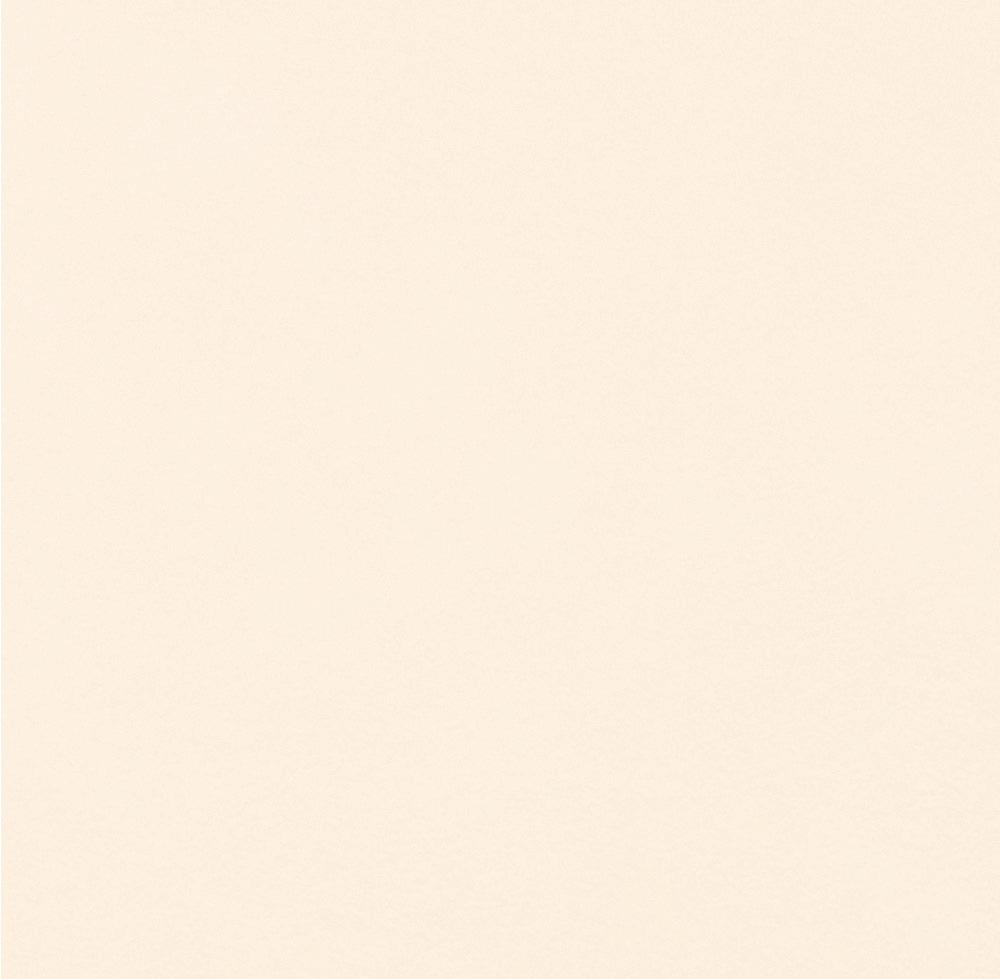


• North End Library Crafters
This group was established in February 2023 and now has six members who meet every Tuesday at the library. They focus on knitting, crocheting and beading; with items donated to Dora Nginza Paediatric Ward, Healing Hands, Maranatha Place of Safety and others.




More than 705 items have been knitted and donated, with an emphasis on Mandela Month contributions.
• West End Public Library Craft Group



This is a newly formed group which meets monthly. They hosted a fabric painting workshop in November 2024. In February 2025, they celebrated Black History Month with a display of black South African authors and African-inspired crafts that consisted of sand and cement plant holders with red heart designs.

• Walmer Library Knitting Club
This group has been meeting every two weeks since January 2023. During this time, they have distributed more than 2 500 knitted items, including blankets, beanies, jerseys and scarves to different charity organisations dealing with children in need. In



June 2024, they donated 923 green school beanies to Walmer Lower Primary School for Grade R




to 4 students. The group receives community support for knitting contributions.

THE Seth Manaka National Museum of Knowledge is a revolutionary mobile museum dedicated to preserving and promoting South Africa’s intellectual heritage. Named after Professor Seth Manaka, a trailblazer in librarianship and a champion of knowledge, the museum brings exhibitions, books and thought-provoking lectures to life at national events and on international platforms.
Our mission is to celebrate South Africa’s diverse stories, wisdom and cultural heritage by showcasing the works of local authors, scholars and visionaries. Through carefully curated exhibitions and engaging presentations, we aim to inspire curiosity, foster learning and spark conversations that bridge generations and communities.
At the heart of our initiative is our website, SouthAfricanJourney.com – a hub of knowledge featuring guides, audio-series and resources that extend the museum’s reach far beyond physical boundaries. From the streets of Mokopane to global arenas, we ensure that South Africa’s stories, traditions and intellectual contributions are heard, seen and celebrated.
The Seth Manaka National Museum of Knowledge is more than a museum – it is a movement to empower minds, nurture creativity and honour the legacy of those who paved the way for knowledge to thrive. Join us on this journey of discovery and transformation.
Together, we celebrate South Africa’s past, illuminate its present, and inspire its future.
A proud member of the Proudly South African movement, the museum transforms complex knowledge into bite-sized, relatable formats. From engaging research guides to inspiring podcasts, audio series and videos, it ensures that the treasures of our past become tools for growth in the present. It’s about empowering communities with knowledge



Chris Kanyane, the person at the heart of the Seth Manaka National Museum of Knowledge.
that sparks self-confidence, development and connection.
At the heart of this groundbreaking project is Chris Kanyane, a man whose career has been shaped by a love for learning and a passion for South Africa’s future.
Kanyane has left his mark at institutions like the University of Johannesburg, the University of Limpopo, and Tshwane University of Technology. He has also served as Chief Researcher at the Human Sciences Research Council (HSRC).
As a Strategic Management Specialist at the Department of Public Service and Administration (DPSA), he continues to drive change. His deep knowledge of libraries, research and public service fuels the museum’s mission to keep South Africa’s stories alive.
By Matshediso Malefane
ON Valentine’s Day 2025, the University of Johannesburg’s (UJ) Doornfontein Campus Library Learning Development Unit hosted a unique event with the theme “a celebration of love, books and resilience”.
This gathering brought together students, faculty and staff to acknowledge the significance of literature, reading and community in overcoming the challenges of university life. Books have a unique way of bringing people comfort – whether they are reading textbooks or learning new viewpoints from novels, or finding comfort in a library corner.
The event commenced with a warm welcome from the library staff, who expressed their appreciation for the students’ perseverance and dedication to their academic interests. As students enjoyed hot chocolate and heart-shaped cookies, the atmosphere was filled with warmth and company. The library’s cosy atmosphere, together with the balloons and Valentine’s Day decorations, created a sense of comfort and belonging. The celebration featured students

sharing their favourite books and authors, as well as their personal academic journeys. Courageous students took the microphone to discuss their struggles, triumphs and the books that had inspired and challenged them.
The event fostered a sense of community and solidarity, as students connected over their shared experiences and love of literature.
The room was filled with nods of recognition, murmurs of encouragement and applause as students celebrated each other’s strengths and resilience.
The library staff concluded the event with an emotional message:
“To all UJ students, we encourage you to continue reading, learning and supporting one another as you navigate the challenges of university life.” As the celebration ended, UJ students departed the library feeling valued, supported and inspired.
The Valentine’s Day celebration at the University of Johannesburg’s Doornfontein Campus Library served as a testament to the transformative power of literature, community and resilience. By acknowledging the challenges faced by students and celebrating their strengths, the event reinforced the importance of empathy, compassion and connection in academic pursuits.
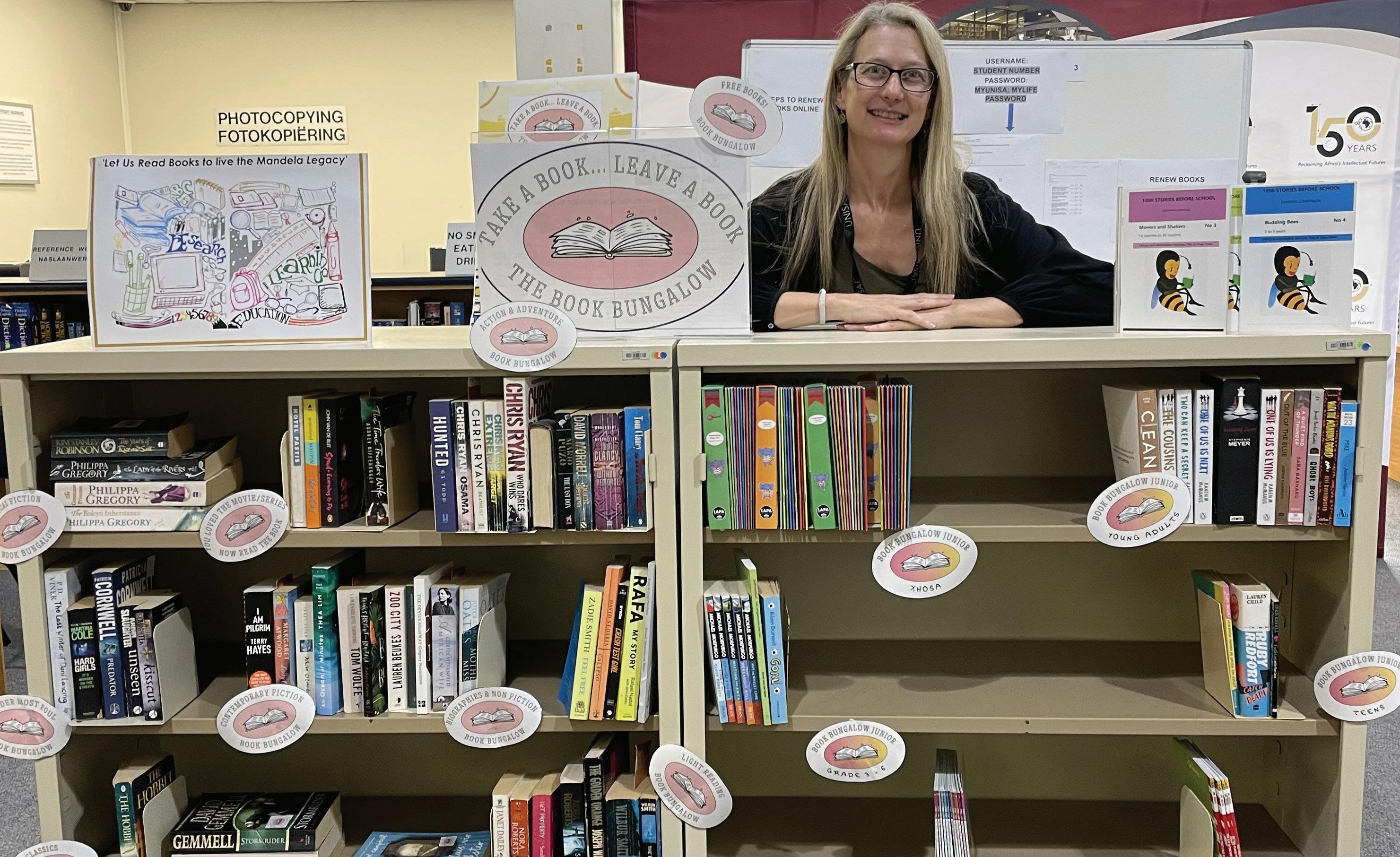
By Michelle Biederman PL(SA)
THE Book Bungalow was established in 2023 at the Unisa Western Cape Branch Library. It is a free library containing books (mostly fiction) for staff and students to take home to read without having to return them. The collection includes works on a wide range of subject matter and backgrounds. Donations are always welcomed, as the motto is “take a book, leave a book”. However, leaving a book is not mandatory.
The Book Bungalow Junior was subsequently established after a retiring staff member gave a generous donation at the end of 2023. This has proved to be extremely popular because many of our students are parents who are delighted at the opportunity to take books home for their children to read. Even better is when their children accompany them to the library and select a few books to read while their parents are busy. This illustrates the efforts made by the Unisa Cape Town Branch Library to encourage and enhance the reading habits of our library clients and their families.
IN August 2024 and December 2024, Book Bungalow Junior received very generous donations of books from the Seven Steps Academy for the Deaf. These were organised by Mogamat Samie Kemp, a parent of one of our students, who is a foreman at the school. He had received permission from the principal, Toni Irvine, to donate their old school library books.
This donation has also created a “pay it forward” moment for the library. Some of the donated books were in turn donated by the Unisa Library to one of our students, Mr Badroodien, who in turn donated them to the Chameleon Sunderland Primary School. Recently, he further collected a donation to take to a reading club in Khayelitsha.
In 2025, the Book Bungalow celebrated Valentine’s Day on February 14 with a “blind date with a book” event. Books were wrapped and stickers placed on each with a few descriptive terms such as “For Rugby Lovers” (autobiography of Rassie); “Lonely Detective” (Kate Atkinson’s Jackson Brodie); “Children who love Insects” (a bundle of three books regarding insects) and more. This was a huge success – with all the books being taken after just a few hours.
We have also received very generous donations of books from the Parow Public Library, Fair Social Free Libraries, and from the Facebook group, The Good Book Appreciation Society. With all of these wonderful donors, we can continuously promote reading for pleasure and the importance of reading to children.
By encouraging accessibility and inclusivity, the Book Bungalow is beneficial to our library users and their families.
It promotes and supports the Sustainable Development Goals (SDGs) and aligns appropriately with the 2025 Library Week theme, “Libraries for Sustainable Communities”.

The Book Bungalow’s “blind date with a book” event was a huge success.











































































































